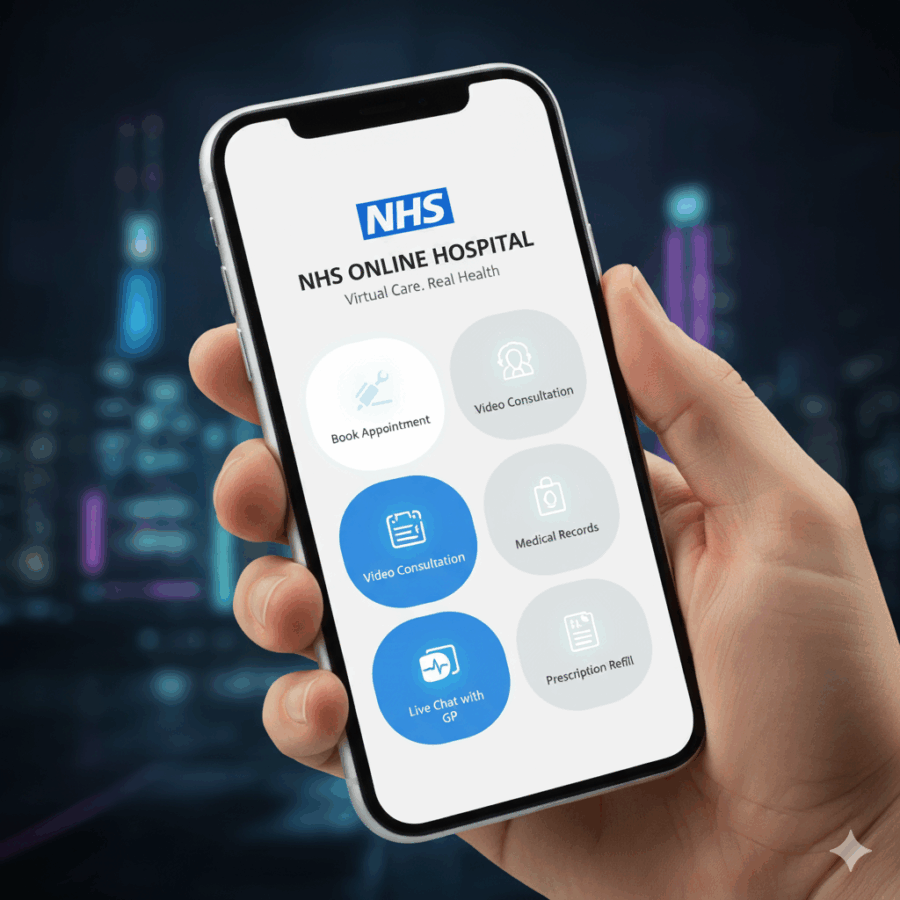latest
Briefing: what the NHS Medium Term Planning Framework means for innovation leaders
The NHS Medium Term Planning Framework pivots the health service from short-term recovery to medium-to-long term reform. It sets non-negotiable performance targets and requirements for the next three and five years. For healthcare innovation leaders, successful delivery hinges on a governance-led, digitally-mandated transformation.
Pillar 1: Digital-by-Default
The Framework accelerates the shift to a digital-by-default model across acute, community, mental health, learning disabilities, autism, and primary care services. Innovation strategies must align immediately with new national digital mandates and deadlines:
- NHS Online & Clinical Access: NHS Online, a new “online hospital,” must be established to connect patients to expert clinicians from 2027. The system must move to a unified access model using AI-assisted triage via the NHS App. It will be supplemented by integrated telephony and in-person offerings.
- Outpatient and Urgent and Emergency Care (UEC) Digitisation: Systems must accelerate the shift to digitally enabled care. This includes advice and guidance, digital triage, remote consultations, and Patient Initiated Follow Up (PIFU) to reduce outpatient follow-up activity (OPFU). A digital-first Urgent and Emergency Care (UEC) model is mandated, utilising clinical prioritisation and scheduling to reduce avoidable demand.
- Ambient Technology Deployment: Providers are explicitly required to deploy ambient voice technology.
Pillar 2: Data and Technical Mandates
Systemic digital success is underpinned by the technical foundation – which demands system-wide adoption and rigorous compliance:
- Federated Data Platform (FDP) Deadline: All acute, community, and mental health providers must be onboarded into the NHS Federated Data Platform (FDP) by 2028/2029.
- EPR and Digital Compliance: Providers must achieve 100% coverage of electronic patient record systems and comply with standards in the Digital Capability Framework as soon as possible.
- Unified Patient Experience: 95% of appointments must be made available on the NHS App after triage. All direct-to-patient communication must transition to NHS Notify.
- Data Granularity: NHS England will combine PLICS, the Model Health System, and Health Expenditure Benchmarking to create a coherent dataset for providers.
Pillar 3: Value and Risk
Innovation must directly support measurable ROI across financial and operational metrics:
- Productivity Mandate: All ICBs and providers are expected to deliver a minimum 2% annual productivity gain and achieve financial balance or surplus each year (without deficit support by 2029).
- Financial Flow Reform: The NHS Payment Scheme will introduce a new UEC payment model with a variable payment and an incentive element designed to drive a “left shift” in care, aligning incentives for more robust delivery.
- Workforce Discipline: Trusts must work towards zero spend on agency by the end of the planning period (2029/30) – as well as a 10% year-on-year reduction in spend on bank staffing.
Implications for Healthcare Innovation Leaders
This medium-term plan creates a highly focused, but high-pressure, environment for innovation. Leaders must pivot strategies from experimental pilots to designing for scale from day zero.
- Focus on ‘Must-Haves’ for Operational Efficiency: Innovation must directly enable the 2% annual productivity target. This favours solutions that streamline workflows, reduce inpatient length of stay, improve theatre productivity, and deliver pre-COVID levels of activity per whole-time equivalent (WTE). Ambient voice technology is a key area of focus for providers.
- Mandate for Data Interoperability and FDP: Private sector innovators must ensure their products are built for immediate integration with the Federated Data Platform (FDP) – mandatory for all key providers by 2028/2029. Public sector leaders must treat FDP and 100% EPR coverage as the foundational architectural requirement for any new clinical system.
- AI for Triage and Access: The core of the new patient access model is AI-assisted triage via the NHS App. Innovation investment must be steered toward robust, clinically safe AI solutions that can handle the increased volume of same-day access for clinically urgent patients, targeted at 90% (subject to consultation).
- New Financial Incentives and Commissioning: The new UEC payment model includes a “left-shift” incentive. Innovators should design solutions that explicitly shift care from high-cost acute settings (A&E) to community and primary care, validating their economic impact against this. The move away from traditional block contracts in UEC creates opportunity for contract-based delivery methods like Integrated Health Organisations (IHOs), which enable end-to-end pathway redesign.
- Embedding Research and Life Sciences: Beyond digital transformation, the new operating model prioritises embedding genomics, life sciences, and research into care delivery. This requires innovation leaders to develop pipelines that accelerate the adoption of new diagnostics, therapeutics, and personalised medicine approaches within the system’s operational constraints.
- Shift from Pilot to Scale: The central direction provided by the 20+ forthcoming guidance documents (including Modern Service Frameworks, a Strategic Commissioning Framework, and a Model IHO blueprint) signals that the ‘rules of the game’ are being standardised. Local leaders must transition from ad-hoc piloting to the rapid adoption of nationally codified standards and frameworks for digital-by-default care.
For help navigating the Medium-Term Planning Framework, talk to Future Care Capital.
Future Care Capital helps leaders manage, evaluate and invest in the innovations that drive meaningful change in health and care. We recognise the systemic silos, short-term thinking, and resource constraints that prevent progress in health and care. We bridge these gaps by thinking and working differently, convening experts and diverse stakeholders, and driving solutions that address long-term challenges.
If you’d like to talk about scaling your innovation to drive long-term impact, talk to Faisal Shafiq at faisal@futurecarecapital.org.uk .

